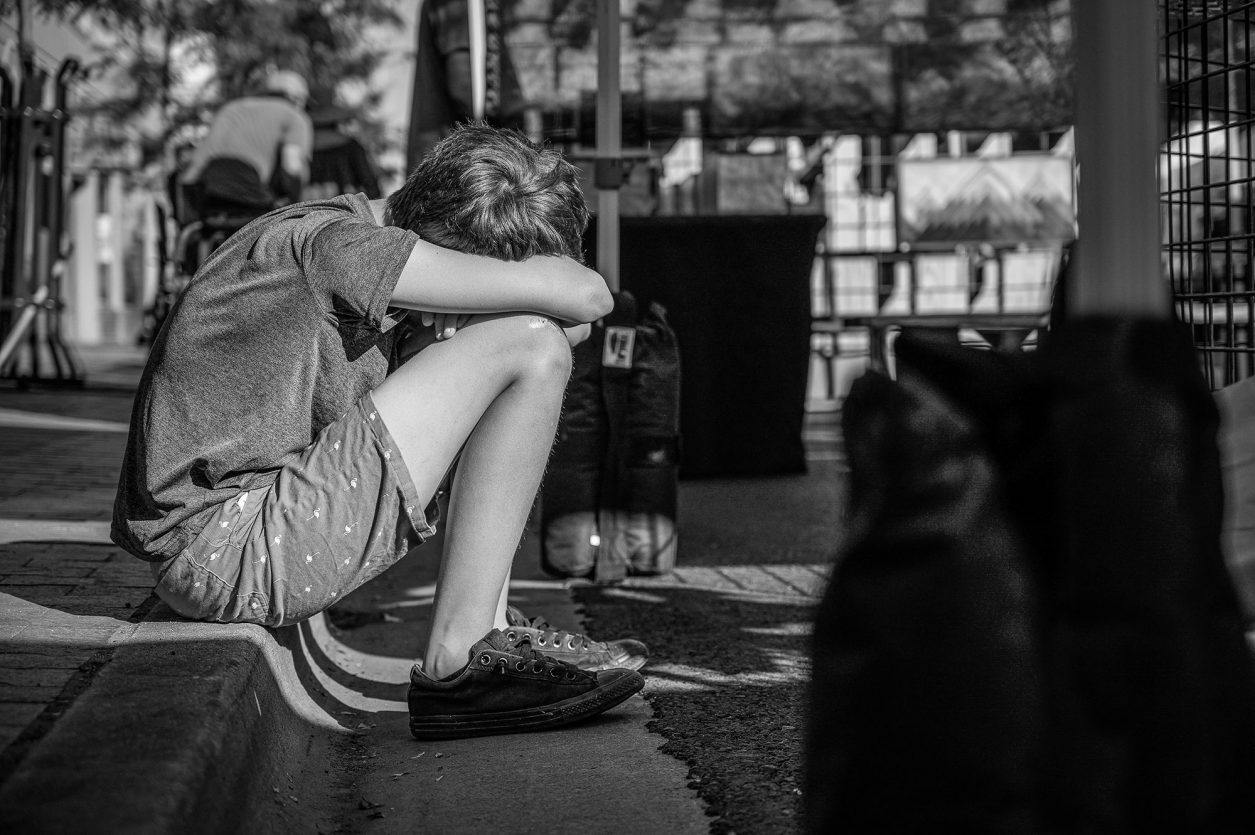For a child who has struggled to make friends in school, the start of the new school year may carry the promise of a fresh start, but the dread of another tough year feeling left out looms even larger. The same goes for parents. We all hang on to the hope that things will somehow be better for our child who struggles this way. But a wait-and-see approach only costs kids valuable time in which they could be learning social skill-building strategies for a fresh start and lasting positive change.
We often think of social skills as something that just naturally happens when we cajole kids to smile and be friendly, but social behavior draws in large part on the brain’s executive functions. These brain-based skills include problem-solving, negotiation, self-advocacy, emotional expression, “big picture” thinking, perspective-taking, and emotional regulation. Executive function social skills help your child learn to read the room, picking up on social cues and expectations and coming up with strategies to respond to the situation and other kids effectively.
Children who struggle socially typically make solid improvement with direct coaching on how to read social cues, how to interact with other kids, and how to apply basic problem-solving steps to social situations. But the first big step is to recognize what I call the story—the narrative or rationalization that’s been used to excuse or explain away a child’s social problems. When a child repeatedly blames others, or generalizes with verdicts like “I’m a loser,” “everybody’s mean (or stupid)” or “I’m fine—I don’t need friends”—that’s their story. And sometimes, as parents, we come up with our own. With story lines like “he’s just quirky,” or “she’s always been shy” we sidestep the truth, which is that quirky or shy kids still need friends and they can learn how to make friends and be a friend. Once you identify the story, together you can take it apart and begin to address the obstacles to friendship and step-by-step skills to overcome them.
What’s your child’s story? Try this listening exercise to hear it more clearly:
- Listen to the way your child describes social dustups or disappointments. What excuses, or self-protecting stories, does he give for his behavior? For other people’s behavior? Just listen—don’t jump in to correct him or argue. You can simply acknowledge what you’re hearing: “It sounds like everybody had quite a wait for the assembly to start.” Or “It sounds like you were frustrated when Ginnie got to go first.”
- Listen to the way your child describes herself in the role she believes she has in her peer group or in the family. Comments such as “I’m always the one who gets in trouble,” “I’m just the funny girl,” “I’m such a loser,” “They’re just stupid,” show an underlying story, or narrative, she is telling herself. Ask your child about those statements or little comments she makes. Some questions you can ask: “I hear you say that a lot—what do you mean by that?” “You say you were ‘being good’—what does being good mean?”
- If your child isn’t a talker or has trouble reflecting and finding the words to express himself, you can help by modeling how to reflect. You can say “I notice…” and share an observation or an image, and ask if they agree or disagree with your perception. You can share an example from a “friend’s child” or you can share something from your own past, telling it with detail. This helps open your child’s own thought process. Ask your child if she knows any children like that at school or in other settings. Ask what she can tell you about them and what she thinks of them.
- When does a belief about ourselves become a story? Bring this up as a curious subject someone brought up recently that got you thinking, and you wonder what your child thinks about it. What is a story we tell ourselves and how is it different from a fact? What kind of story can be helpful? What kind of story can hold us back? Be ready with child-friendly examples. For instance, people once thought the world was flat. How did that limit what they thought was possible and what they were willing to try? Suggest some from your own experience: “I once believed that I would never _______, and then ___________.
- Listen for comments that assume that nothing and no one can change. “I’ll never be any good at this.” “Nobody likes me.” “Everybody hates me.” Ask your child if she has ever changed her mind—about anything or anybody. Or changed her understanding of something (dinosaurs, soccer, or other favorite interests) when she learned more. Imagine a universe where nothing and nobody ever changed—what does nature tell us about change?
- Explore her assumptions about social life and friendship. Does she tell you she’ll “never be invited” or “it’s not worth trying to see someone” or she wants “to keep trying on her own”? Some responses include: “What makes you say that? How come? Tell me more about that.”
- Ask your child to draw a picture of what is hard about friendships. Then explore the drawing with her. Who are the people and what is she trying to show? What does she feel when she draws these scenes?
- Identify a positive story or belief you wish your child could feel about his ability to improve his social situation, and ask him to look at it with you. Examples might include: Change is always possible; if you continue to meet people, you will make friends; we all have to work on our social approach and there is a big payoff for that. Share them with your child and ask: What would happen if you believed that? When I say (the positive belief), how do you feel about that?
If you have watched your child’s struggle from the sidelines or believe your child is beyond help, you may have come to believe a story about them or their situation. Remember that often the stories we tell ourselves (and our children tell themselves) are more a reflection of our frustration or hopelessness than an accurate reflection of our child’s potential for change and growth. Whatever the story, I’m asking you to shed that snakeskin right now. Once you do, you and your child will be able to see more clearly what’s really getting in the way, and begin thoughtful problem-solving steps that can really make a difference.
You can’t “bully proof” your child, but you can do something better
Whether you call them mean girls, queen bees or just plain bullies, labeling people doesn’t really help change their mean behavior and it can make them seem even more invincible, especially to kids. On some level, a lot of things that are called bullying are really different kinds of social conflict. Parents often tell me about bullying but it’s not about bullying—it’s that someone was not nice: Name calling. Rudeness. And plain old mean-spirited stuff. Mean behavior is a problem (not just for kids), and while you can’t “bully proof” your child against it, you can prepare them with important social skills and problem-solving strategies that will serve them well beyond the pushy playground peer. Every child should and can learn to
- develop social skills that foster friendships and strengthen connections with other children. A socially isolated child is a vulnerable child.
- teach people how to treat you. If you just endlessly tolerate being with someone who treats you poorly, then that’s the message you send.
- search out kids who share your interests, or find different activities where you can engage with kids who treat others well.
- reach out to a parent or other trusted adult to share about a situation that feels bad or hurtful, and brainstorm ways you could respond y yourself, or involve others if needed.
- if you hear or see mean behavior, do your best in the moment to counteract it with a show of kindness or solidarity. If needed, tell your parent, teacher or other trusted adult about what you’ve witnessed.
 By Caroline Maguire, PCC, M.ED., is a personal coach who works with children with ADHD and the families who support them. Caroline earned her ACCG from the ADD Coach Academy and her PCC from the International Coach Federation (ICF). She also received a Master of Education from Lesley University. Her revolutionary coaching program and methodology helps teach executive function skills to children, teenagers, and young adults. She is a former coach for the Hallowell Center in Sudbury, MA. While with the Hallowell Center, Caroline was the main coach for children and teenagers. Caroline also co-led social skills groups and consulted with local schools.
By Caroline Maguire, PCC, M.ED., is a personal coach who works with children with ADHD and the families who support them. Caroline earned her ACCG from the ADD Coach Academy and her PCC from the International Coach Federation (ICF). She also received a Master of Education from Lesley University. Her revolutionary coaching program and methodology helps teach executive function skills to children, teenagers, and young adults. She is a former coach for the Hallowell Center in Sudbury, MA. While with the Hallowell Center, Caroline was the main coach for children and teenagers. Caroline also co-led social skills groups and consulted with local schools.

















